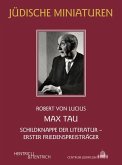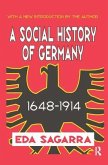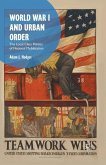The history of the European Reformation is intimately bound-up with the development of printing. With the ability of the printed word to distribute new ideas, theologies and philosophies widely and cheaply, early-modern society was quick to recognise the importance of being able to control what was published. Whilst much has been written on censorship within Catholic lands, much less scholarship is available on how Protestant territories sought to control the flow of information. In this ground-breaking study, Allyson F. Creasman reassesses the Reformation's spread by examining how censorship impacted upon public support for reform in the German cities. Drawing upon criminal court records, trial manuscripts and contemporary journals - mainly from the city of Augsburg - the study exposes the networks of rumour, gossip, cheap print and popular songs that spread the Reformation message and shows how ordinary Germans adapted these messages to their own purposes. In analysing how print and oral culture intersected to fuel popular protest and frustrate official control, the book highlights the limits of both the reformers's influence and the magistrates's authority. The study concludes that German cities were forced to adapt their censorship policies to the political and social pressures within their communities - in effect meaning that censorship was as much a product of public opinion as it was a force acting upon it. As such this study furthers debates, not only on the spread and control of information within early modern society, but also with regards to where exactly within that society the impetus for reform was most strong.
Hinweis: Dieser Artikel kann nur an eine deutsche Lieferadresse ausgeliefert werden.
Hinweis: Dieser Artikel kann nur an eine deutsche Lieferadresse ausgeliefert werden.
'Skillfully reconstructed from a plethora of archival case studies, this fresh take on urban discursive culture not only explains the vagaries of formal censorship law as an intentional and necessary mechanism for preserving civic order ... but also successfully demonstrates that the workings of early modern censorship relied upon a decidedly pre-modern expectation, namely, that all urban dwellers, whether elite or common, clerical or lay, should shape their actions and opinions in the interest of preserving the urban community. ... All are likely to find Creasman's approach highly stimulating for their own research.' Lutheran Quarterly 'Apart from the book's refreshing sensitivity to negotiation and cooperation as keys to enforcing censorship policies, Creasman's other main contribution consists in an extended definition of censorship. This study includes an assessment not only of print culture, but also takes into account how oral culture fitted into early modern efforts to regulate expression. The book's attention on oral violations of censorship law makes an important impression on the book's overall thesis... This book has much to recommend it.' German History 'Creasman's book succeeds in giving Reformation studies a much-needed account of censorship in the German cities. Typical of Ashgate's volumes in its St Andrews Studies in Reformation History series, Censorship and Civic Order in Reformation Germany is well researched and replete with fascinating details.' Sixteenth Century Journal 'Creasman has some important things to say about the flow of ideas in the German Reformation. By adopting a notion of censorship that projects it as a dynamic force in dialogue rather than just a normative measure impressed from above, we get a sense of how it served as both a forum for negotiating competing demands and a vehicle for creating and enforcing new concepts of civic order. Historians who speak of civic reformation settlements or the rise o








